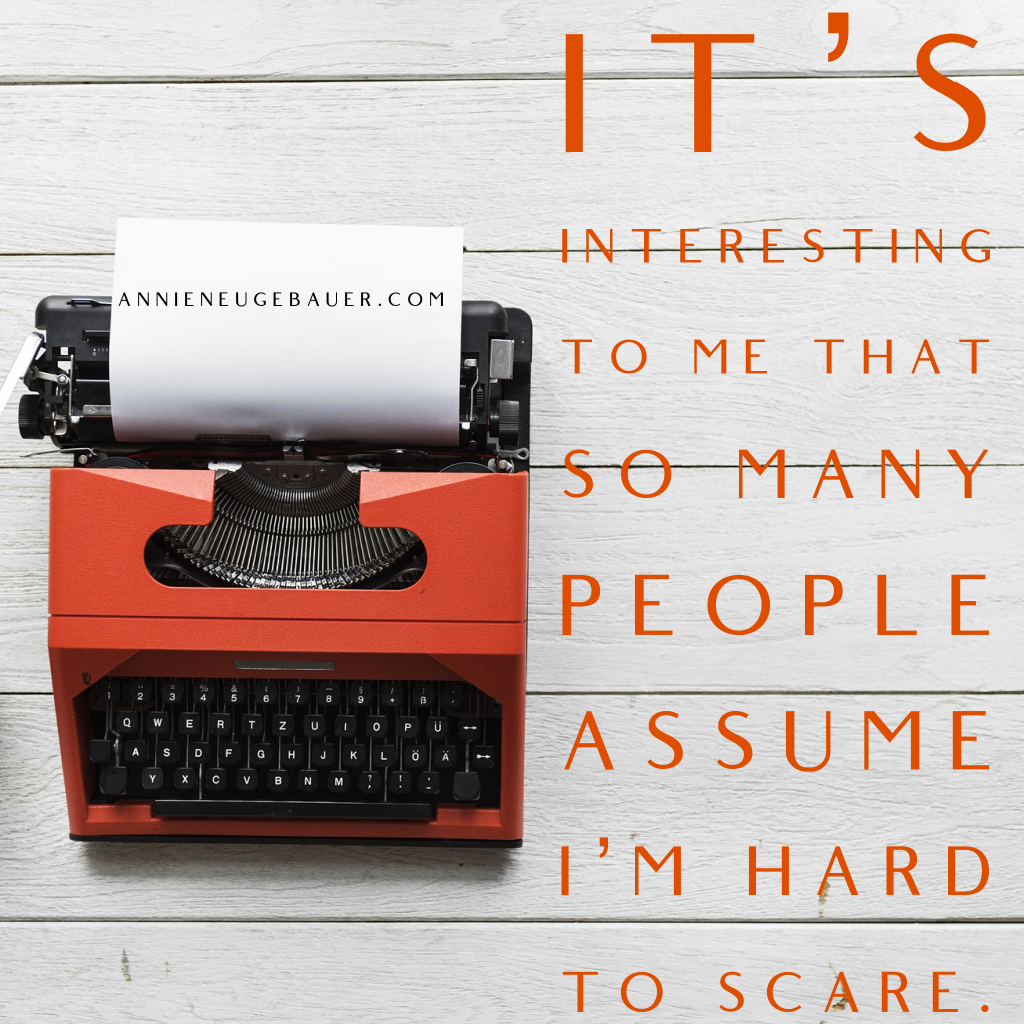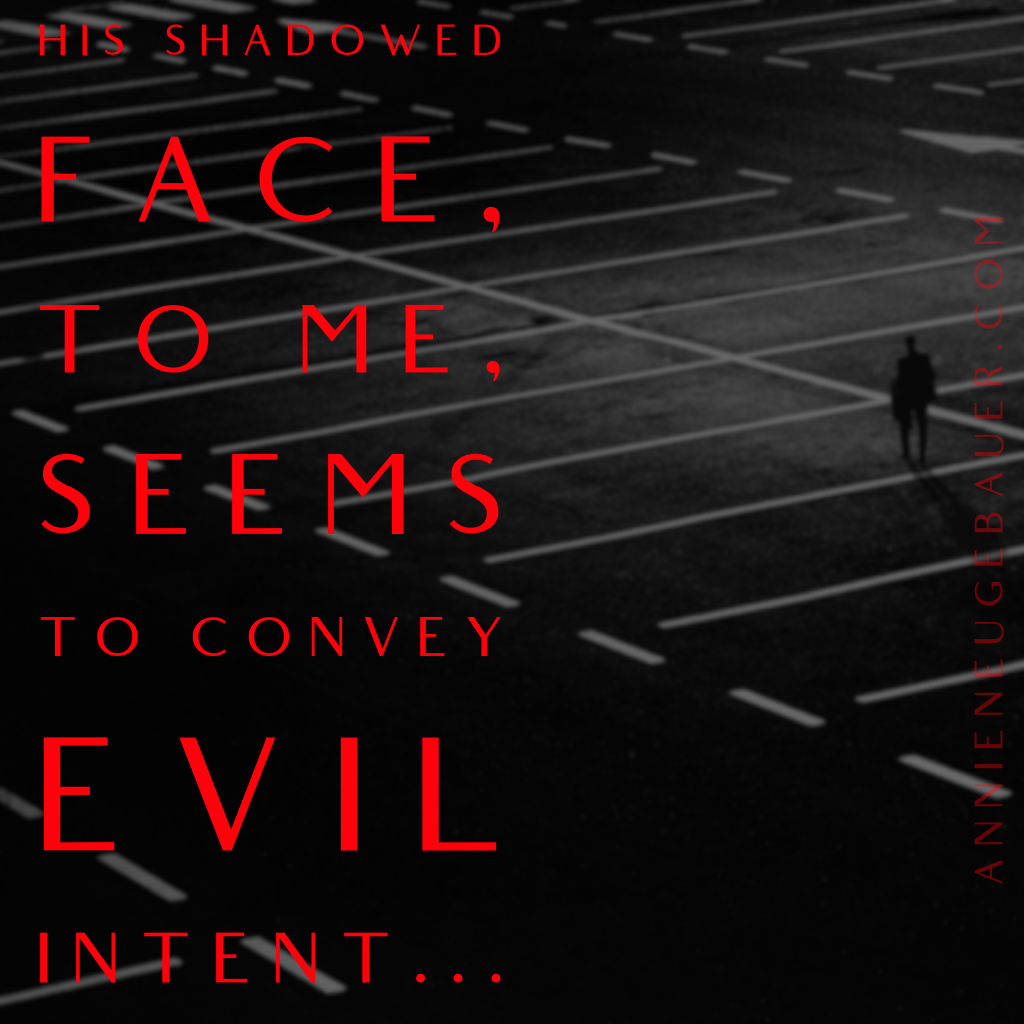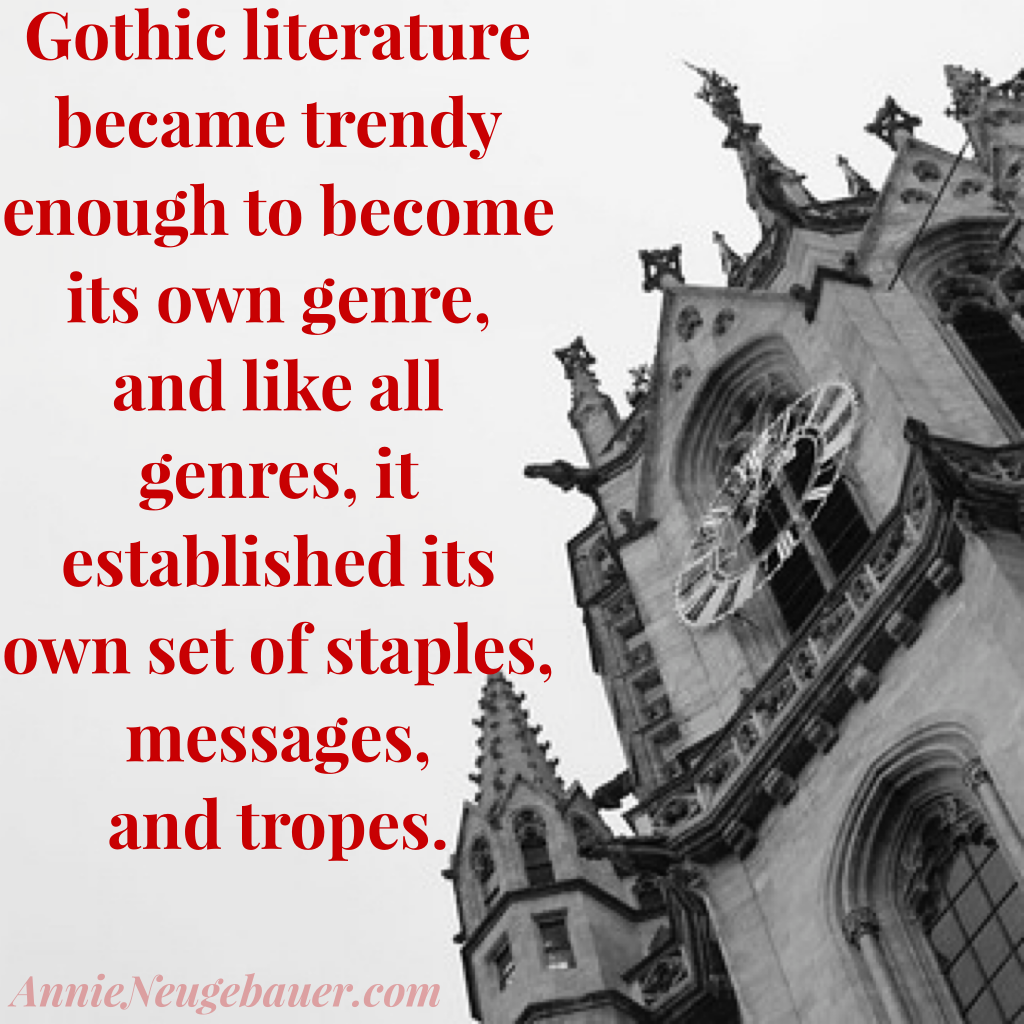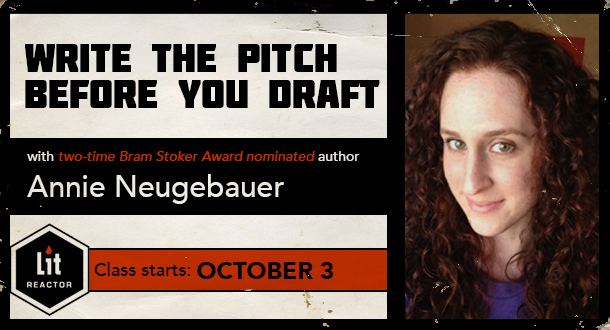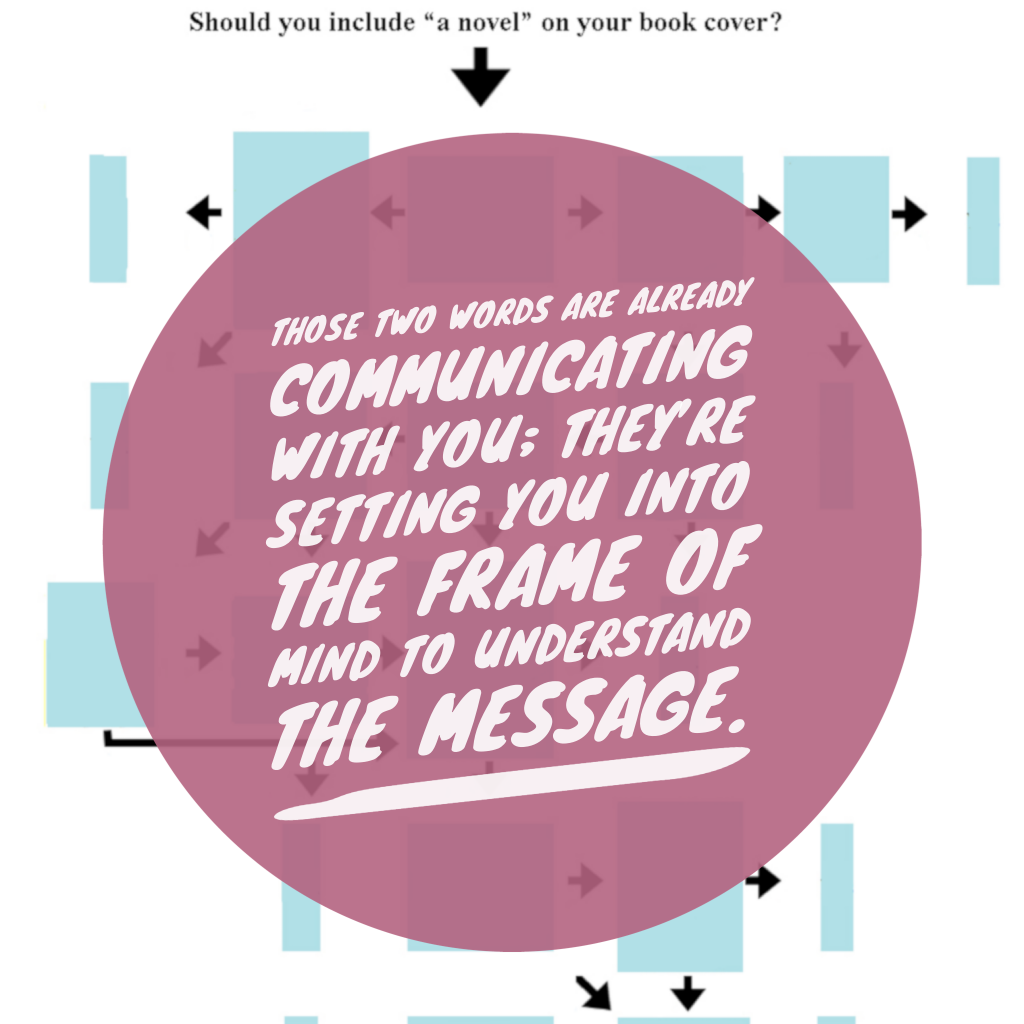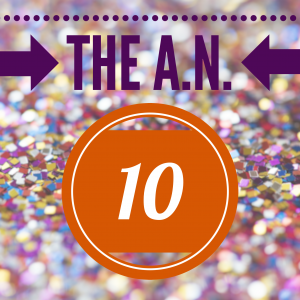 My tenth and final pick for The A.N. 10 is all about horror, just in time for Halloweek! (Let’s be honest; Halloween gets a full month from me at least, but ‘Hallomonth’ doesn’t have the same ring to it.) This post is a favorite for several reasons. First, it’s a glimpse into my theory on horror, which might not be quite what you’d expect. Second, it yet again showcases my fangirl powers, which is really just me shouting from the rooftops about books and authors I love, which I firmly believe all readers should do. Third, one of my literary heroes shared the post and said nice things about it (and me!), which made not just my day but my year. No kidding.
When Anne Rice shares your post on Facebook with her million+ followers, calling it an “interesting essay,” you get a little traffic boost. 😉 She also said in the comments, “She writes well, doesn’t she? That’s why I’ve linked to two of her posts today.” I still grin when I read that! How cool is it that Anne Rice shares not just an unknown writer like me, but also posts about a different superstar author like Stephen King, who many would see as her ‘competition’? She’s cool people. (For the curious, she also shared “Thoughts on Gone Girl,” “The Differences Between Commercial and Literary Fiction,” and “Introducing My Newest Guilty Pleasure: Bates Motel.”) (Also for the curious, I’ve blogged about Ms. Rice more times than I can count; see the search for her name on this blog here.)
And my post itself? Well, you’ll have to read it. It has a book rave, horror philosophy, true confessions, a quest for a white whale, and a hand-drawn comic I did about the devil.
The link is below. Thanks for sticking with me through my top 10 posts to celebrate my 10 years of blogging. These ten years wouldn’t have been so great without each and every one of you. ♥
Happy Halloween!
My tenth and final pick for The A.N. 10 is all about horror, just in time for Halloweek! (Let’s be honest; Halloween gets a full month from me at least, but ‘Hallomonth’ doesn’t have the same ring to it.) This post is a favorite for several reasons. First, it’s a glimpse into my theory on horror, which might not be quite what you’d expect. Second, it yet again showcases my fangirl powers, which is really just me shouting from the rooftops about books and authors I love, which I firmly believe all readers should do. Third, one of my literary heroes shared the post and said nice things about it (and me!), which made not just my day but my year. No kidding.
When Anne Rice shares your post on Facebook with her million+ followers, calling it an “interesting essay,” you get a little traffic boost. 😉 She also said in the comments, “She writes well, doesn’t she? That’s why I’ve linked to two of her posts today.” I still grin when I read that! How cool is it that Anne Rice shares not just an unknown writer like me, but also posts about a different superstar author like Stephen King, who many would see as her ‘competition’? She’s cool people. (For the curious, she also shared “Thoughts on Gone Girl,” “The Differences Between Commercial and Literary Fiction,” and “Introducing My Newest Guilty Pleasure: Bates Motel.”) (Also for the curious, I’ve blogged about Ms. Rice more times than I can count; see the search for her name on this blog here.)
And my post itself? Well, you’ll have to read it. It has a book rave, horror philosophy, true confessions, a quest for a white whale, and a hand-drawn comic I did about the devil.
The link is below. Thanks for sticking with me through my top 10 posts to celebrate my 10 years of blogging. These ten years wouldn’t have been so great without each and every one of you. ♥
Happy Halloween!
The A.N. 10 #10: I Do IT Because IT’s Scary
 My tenth and final pick for The A.N. 10 is all about horror, just in time for Halloweek! (Let’s be honest; Halloween gets a full month from me at least, but ‘Hallomonth’ doesn’t have the same ring to it.) This post is a favorite for several reasons. First, it’s a glimpse into my theory on horror, which might not be quite what you’d expect. Second, it yet again showcases my fangirl powers, which is really just me shouting from the rooftops about books and authors I love, which I firmly believe all readers should do. Third, one of my literary heroes shared the post and said nice things about it (and me!), which made not just my day but my year. No kidding.
When Anne Rice shares your post on Facebook with her million+ followers, calling it an “interesting essay,” you get a little traffic boost. 😉 She also said in the comments, “She writes well, doesn’t she? That’s why I’ve linked to two of her posts today.” I still grin when I read that! How cool is it that Anne Rice shares not just an unknown writer like me, but also posts about a different superstar author like Stephen King, who many would see as her ‘competition’? She’s cool people. (For the curious, she also shared “Thoughts on Gone Girl,” “The Differences Between Commercial and Literary Fiction,” and “Introducing My Newest Guilty Pleasure: Bates Motel.”) (Also for the curious, I’ve blogged about Ms. Rice more times than I can count; see the search for her name on this blog here.)
And my post itself? Well, you’ll have to read it. It has a book rave, horror philosophy, true confessions, a quest for a white whale, and a hand-drawn comic I did about the devil.
The link is below. Thanks for sticking with me through my top 10 posts to celebrate my 10 years of blogging. These ten years wouldn’t have been so great without each and every one of you. ♥
Happy Halloween!
My tenth and final pick for The A.N. 10 is all about horror, just in time for Halloweek! (Let’s be honest; Halloween gets a full month from me at least, but ‘Hallomonth’ doesn’t have the same ring to it.) This post is a favorite for several reasons. First, it’s a glimpse into my theory on horror, which might not be quite what you’d expect. Second, it yet again showcases my fangirl powers, which is really just me shouting from the rooftops about books and authors I love, which I firmly believe all readers should do. Third, one of my literary heroes shared the post and said nice things about it (and me!), which made not just my day but my year. No kidding.
When Anne Rice shares your post on Facebook with her million+ followers, calling it an “interesting essay,” you get a little traffic boost. 😉 She also said in the comments, “She writes well, doesn’t she? That’s why I’ve linked to two of her posts today.” I still grin when I read that! How cool is it that Anne Rice shares not just an unknown writer like me, but also posts about a different superstar author like Stephen King, who many would see as her ‘competition’? She’s cool people. (For the curious, she also shared “Thoughts on Gone Girl,” “The Differences Between Commercial and Literary Fiction,” and “Introducing My Newest Guilty Pleasure: Bates Motel.”) (Also for the curious, I’ve blogged about Ms. Rice more times than I can count; see the search for her name on this blog here.)
And my post itself? Well, you’ll have to read it. It has a book rave, horror philosophy, true confessions, a quest for a white whale, and a hand-drawn comic I did about the devil.
The link is below. Thanks for sticking with me through my top 10 posts to celebrate my 10 years of blogging. These ten years wouldn’t have been so great without each and every one of you. ♥
Happy Halloween!
The A.N. 10 #9: 2Spooky, the Rhyming Edition
 My ninth pick for The A.N. 10 is great timing for October. *evil smile* Who says poetry can’t be horror? “Scarcely Caged” is an oldie but a goodie, and one of the only poems I published directly to my blog first (as opposed to reprinting poems that appear elsewhere after they’re already out). The reason I did it that way was to show the “Evolution of a Sonnet” from conception to final polish.
My Sonnet Building series of posts is one of my most popular, but it’s five posts long and a bit of a commitment, not to mention specific to poets who want to try their hand at sonnets. The evolution post is just one, and it shows you step by step on an actual poem. So if you’re interested in how I write sonnets–specifically the one I’m sharing today–feel free to check that one out.
But the poem itself, “Scarcely Caged” is what I’m making my ninth pick, because even non-poets, non-writers, and (I like to think) non-poetry-readers can enjoy it. It takes just a few moments to read, and lots of people have had delightful reactions over the years. So go get a little chill with your rhyme!
The link is below. And don’t forget to subscribe to my blog to get the very last (October-friendly!) “A.N. 10” highlight in your email! (Put annie@annieneugebauer.com in your approved senders list to make sure my blogs don’t get lost in spam.)
My ninth pick for The A.N. 10 is great timing for October. *evil smile* Who says poetry can’t be horror? “Scarcely Caged” is an oldie but a goodie, and one of the only poems I published directly to my blog first (as opposed to reprinting poems that appear elsewhere after they’re already out). The reason I did it that way was to show the “Evolution of a Sonnet” from conception to final polish.
My Sonnet Building series of posts is one of my most popular, but it’s five posts long and a bit of a commitment, not to mention specific to poets who want to try their hand at sonnets. The evolution post is just one, and it shows you step by step on an actual poem. So if you’re interested in how I write sonnets–specifically the one I’m sharing today–feel free to check that one out.
But the poem itself, “Scarcely Caged” is what I’m making my ninth pick, because even non-poets, non-writers, and (I like to think) non-poetry-readers can enjoy it. It takes just a few moments to read, and lots of people have had delightful reactions over the years. So go get a little chill with your rhyme!
The link is below. And don’t forget to subscribe to my blog to get the very last (October-friendly!) “A.N. 10” highlight in your email! (Put annie@annieneugebauer.com in your approved senders list to make sure my blogs don’t get lost in spam.)
Scarcely Caged
The A.N. 10 #8: Going Goth (I.e. That Post that Peaked after Crimson Peak)
 Happy October!! I know for the past few years I’ve done my #BooksBrewBoo giveaway during October, but this year my plate’s a little too full to manage that, so I’m finishing off my A.N. 10 highlights with three seasonally-appropriate posts. Boo!
My eighth pick for The A.N. 10 is my third pick from my What Is Genre? series of posts. I just really, really love discussing and analyzing fiction genres. (Which reminds me that I’m probably past due for my next in the series. What to cover? Hmm…)
“What Is Gothic Fiction?” was a fun one because I’d already spent so much dang time researching the topic on my own that writing the post was just plain easy. I don’t know why, exactly, I’ve always been so drawn to gothic novels, but I have. I’ve read all the most important pieces in the literary canon and read up on the history, etc. I’ve written many different blogs on the topic, too, besides this one. There’s just something about a perambulating skeleton, you know? 😉
“What Is Gothic Fiction?” had a fun little resurgence when Guillermo del Toro released Crimson Peak in 2015. He kept saying, “It’s gothic, not horror!” and everyone kept asking, “Okay but what’s the difference?!” My post came in pretty handy then. If you’re still confused about what makes a story “gothic,” it might come in handy now, too! Fortunately for me and the small but passionate club of gothic enthusiasts, gothic fiction isn’t going out of style any time soon, and neither is this post.
The link is below. And don’t forget to subscribe to my blog to get the final 2 (October-friendly!) “A.N. 10” highlights in your email! (Put annie@annieneugebauer.com in your approved senders list to make sure my blogs don’t get lost in spam.)
Happy October!! I know for the past few years I’ve done my #BooksBrewBoo giveaway during October, but this year my plate’s a little too full to manage that, so I’m finishing off my A.N. 10 highlights with three seasonally-appropriate posts. Boo!
My eighth pick for The A.N. 10 is my third pick from my What Is Genre? series of posts. I just really, really love discussing and analyzing fiction genres. (Which reminds me that I’m probably past due for my next in the series. What to cover? Hmm…)
“What Is Gothic Fiction?” was a fun one because I’d already spent so much dang time researching the topic on my own that writing the post was just plain easy. I don’t know why, exactly, I’ve always been so drawn to gothic novels, but I have. I’ve read all the most important pieces in the literary canon and read up on the history, etc. I’ve written many different blogs on the topic, too, besides this one. There’s just something about a perambulating skeleton, you know? 😉
“What Is Gothic Fiction?” had a fun little resurgence when Guillermo del Toro released Crimson Peak in 2015. He kept saying, “It’s gothic, not horror!” and everyone kept asking, “Okay but what’s the difference?!” My post came in pretty handy then. If you’re still confused about what makes a story “gothic,” it might come in handy now, too! Fortunately for me and the small but passionate club of gothic enthusiasts, gothic fiction isn’t going out of style any time soon, and neither is this post.
The link is below. And don’t forget to subscribe to my blog to get the final 2 (October-friendly!) “A.N. 10” highlights in your email! (Put annie@annieneugebauer.com in your approved senders list to make sure my blogs don’t get lost in spam.)
What Is Gothic Fiction?
NOT The A.N. 10: My New Class ‘Write the Pitch’ at LitReactor!
We interrupt this regularly scheduled programming to bring you an important announcement…
You have only one week (or less!) left to sign up for my brand new LitReactor course Write the Pitch Before You Draft. You guys, I am SO excited to teach this class. Truly. I love teaching. I love writers. And I love this method for planning a novel. I figured it out years ago and use it every single time I write a new book. It saves me time, heartache, and beaucoups revisions. And now I’m going to show you how too.
Let’s back up. What is it? It’s a four-week online class that I’m teaching at LitReactor.com that will help writers who are planning to write a novel. It starts October 3. It’s for all levels of writers, first novel or twentieth. You can use it at any stage of your process, including revisions, but this course is designed for people who have some early ideas about what they want their book to be but haven’t figured it all out yet, or at least haven’t gotten far into the drafting process. (Started and stuck is fine!) It’s not another plotting method; it’s compatible with any method you already love or even with pantsing (no method). It’s larger than that. I call it master planning.
The essential idea is to write your pitch (query letter, editorial pitch, or back cover copy/blurb) before you write your book itself. I’ll teach you in class what the important components of a good pitch are, because it turns out that those components are the same ones that make a solid, salable novel too. I’ll walk you through step by step about what you need, how to use what you have to fill in what’s missing, how to position the components for maximum payoff, and how to avoid the most common pitfalls. It saves you serious time during revisions to do your legwork up front. And a crazy cool bonus is that once you’ve created this master plan to write from, you’ve also finished your pitch itself. You’ll leave this class with a complete, polished pitch that will be ready to go once your book is done.
Four weeks. Four online lectures. Four assignments—and four bonus assignments. Challenges to help you grow as a writer. Hard work. A forum of other writers to help and get help from. Personal feedback from me, plus answers to all the questions you need to ask. A solid pathway to start your next WIP, whether that be this November for NaNoWriMo or next year. And a pitch to send it off with.
I truly believe that if you put in the time to master this method, you’ll never go back to skipping the planning. I haven’t.
Are you ready? Check out specifics including a detailed course plan, pricing, and more at LitReactor.com. Questions about the class itself? Hit me up here in the comments, email, or message LitReactor directly.
I’d love to see you in class this October! Please share with your writing friends. ♥
Now back to our regularly scheduled programming. 😊
The A.N. 10 #7: A Novel Label, or Redundant Redundancy?
 Have you ever wondered why some books have a subtitle-ish phrase under the title that just says “a novel”? Even when it’s obvious it’s a novel? Lots of people have.
My seventh pick for The A.N. 10 is an older post that still gets tons of search traffic. “Why Some Novels Say ‘A Novel’ on the Cover, and If Yours Should Too” is yet another post where I took something that seemed clear to me and broke it down for others. I guess I have a knack; I just love dissecting topics, and I love teaching!
This was one of my first infographics, too: a flowchart to help writers decide if they, too, would like “a novel” written under their titles. The graphic is a little old-school, but I haven’t redone it because it still gets the job done. And I remember it taking me forever. It might’ve even been before I had Photoshop, much less knowledge of cool free graphic-making aids. Paint? I shudder to imagine.
But don’t worry, the content is still solid. 🙂 I’m proud of this one, and happy about how many times people googling a specific question have stumbled on my answer.
The full post is linked below. And don’t forget to subscribe to my blog to get the final 3 “A.N. 10” highlights in your email! (Put annie@annieneugebauer.com in your approved senders list to make sure my blogs don’t get lost in spam.)
Have you ever wondered why some books have a subtitle-ish phrase under the title that just says “a novel”? Even when it’s obvious it’s a novel? Lots of people have.
My seventh pick for The A.N. 10 is an older post that still gets tons of search traffic. “Why Some Novels Say ‘A Novel’ on the Cover, and If Yours Should Too” is yet another post where I took something that seemed clear to me and broke it down for others. I guess I have a knack; I just love dissecting topics, and I love teaching!
This was one of my first infographics, too: a flowchart to help writers decide if they, too, would like “a novel” written under their titles. The graphic is a little old-school, but I haven’t redone it because it still gets the job done. And I remember it taking me forever. It might’ve even been before I had Photoshop, much less knowledge of cool free graphic-making aids. Paint? I shudder to imagine.
But don’t worry, the content is still solid. 🙂 I’m proud of this one, and happy about how many times people googling a specific question have stumbled on my answer.
The full post is linked below. And don’t forget to subscribe to my blog to get the final 3 “A.N. 10” highlights in your email! (Put annie@annieneugebauer.com in your approved senders list to make sure my blogs don’t get lost in spam.)

